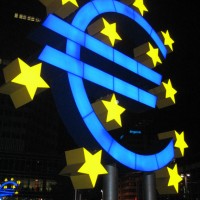
Responding to a question by Mortgage Solutions at a broker insight event, Shaw said the bigger issue was a lack of housing for the UK’s growing population combined with regulatory requirements.
Investec’s prediction comes shortly after Virgin Money boss, Jayne-Anne Gadhia, said a Brexit could cost UK jobs and lead to a “negative economic spiral” which would eventually increase mortgage rates.
Shaw said: “I don’t necessarily see a massive impact on house prices. In the UK domestic property market, the biggest driver is demographics and regulation. In terms of demographics you’ve got an estimated household formation of about 270,000 a year in the UK over the next 10 to 20 years, but housebuilding last year was about half of that. So property shortages would be considered to be a structural factor in the market.”
He added that there was likely to be a long period of uncertainty in the national economy if the UK were to leave the European Union on 23 June.
“We’ll have a long period where we don’t know what our exporters are going to be facing, it’s a risk to inward investment and you also have the prospect of UK industry leaving. So in the housing market, if we look at the top end particularly, you’ve got lots of questions about what’s going to drive growth. The UK may not be seen as a safe haven as it was previously.”
On interest rates, Shaw said he was sceptical that the Bank of England would move to cut rates, but wouldn’t rule it out.
Last month, Bank of England governor Mark Carney hinted that the Monetary Policy Committee could vote for a rate cut instead of a hike, which had been widely anticipated.
Shaw said: “I am sceptical of a cut in interest rates, but it is a risk. The Bank rate is down at 0.5%, it’s not impossible that the Bank of England, if things went badly, cut them by another quarter of a per cent, I wouldn’t rule that out entirely.
“When you’re looking at negative rates then that’s a different kettle of fish because that begins to then have a big impact on a lot of things, and one of them is the banks. Effectively, negative interest rates could be seen as a tax on the banking sector because there’s no way in the world that banks would be able to cut their rates on current accounts from zero to a negative rate. Therefore, the more you drive rates into negative territory, the more you’re impacting on banks, when what you need is for the banks to lend money.”
















